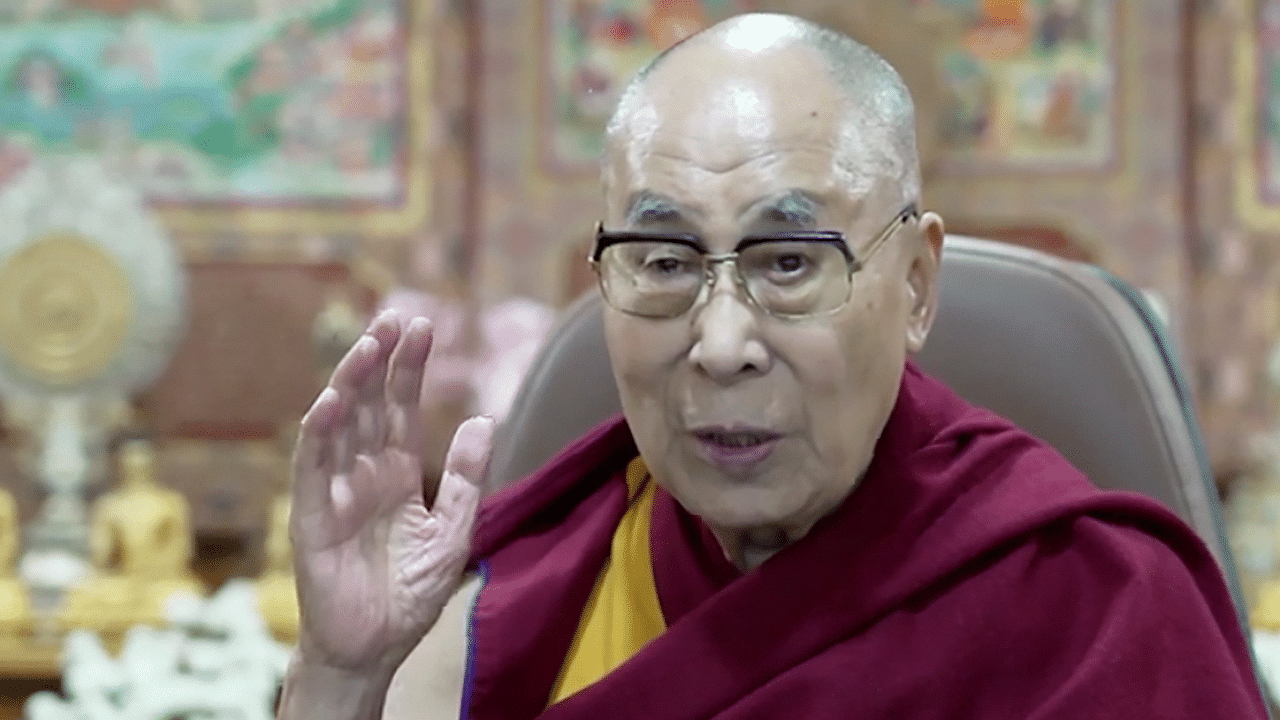
Tibetan spiritual leader Dalai Lama will on Friday fly to Leh for a month-long sojourn in Ladakh – approved and facilitated by the Centre, apparently to send out a message to Beijing just before another round of negotiations to resolve the military stand-off along the Line of Actual Control.
The Dalai Lama reached Jammu on Thursday and, after an overnight stay, will fly to Leh on Friday. This is not only going to be his first visit outside his private residence in exile at Dharamshala after the onset of the Covid-19 pandemic, but also his first to Jammu and Ladakh after China joined Pakistan to oppose the August 5, 2019 move by the government of Prime Minister Narendra Modi to strip the erstwhile state of Jammu and Kashmir of its special status and reorganise it into two separate Union Territories.
The visit by the Tibetan Buddhist monk is also his first one to Leh since the military stand-off between India and China started along the Line of Actual Control (LAC) in eastern Ladakh in April-May 2020.
With the commanders of the Indian Army and the Chinese PLA likely to meet on Sunday to hold the 16th round of negotiations to resolve the stand-off along the LAC, the Centre apparently facilitated the visit of the Dalai Lama to Leh to send a message to Beijing and reassert its territorial claim on the Union Territory of Ladakh.
Modi’s phone call to the Dalai Lama on his 87th birthday last week irked China, prompting it to ask India to refrain from using the issue of Tibet to interfere in the internal affairs of China. New Delhi responded by underlining that it was a consistent policy of the Government of India to treat the Dalai Lama as an honoured guest in the country.
The Dalai Lama has been living in India ever since he fled the Potala Palace in Lhasa in March 1959, to escape the Chinese PLA, which had by then occupied Tibet. He has been a staunch advocate for non-violence and freedom and was awarded the Nobel Peace Prize in 1989. He has been demanding “genuine autonomy” – not independence from the Chinese Government’s rule – for Tibet.
Beijing, however, still calls him a “separatist” and accuses him of running a campaign to split China.
“Not Chinese people but some hardliners there (in China) consider me as a separatist and reactionary,” the Dalai Lama told journalists in Jammu. “More and more Chinese people now realise that the Dalai Lama is not seeking independence but a meaningful autonomy and preservation of Tibetan Buddhist culture within China.”
His visit to Rashtrapati Bhavan on an invitation from then President Pranab Mukherjee in December 2016 had triggered a strong protest from China. So had New Delhi’s decisions in 2009 and 2017 to allow him to visit Arunachal Pradesh. China had in 2019 sent some civilians and soldiers to the LAC at Demchok in Ladakh in order to protest the celebration of the 84th birthday of the Dalai Lama by people in a border village in India.
New Delhi, however, had always been dismissing the protests from Beijing, underlining that the Dalai Lama had always been free to visit any part of India.
